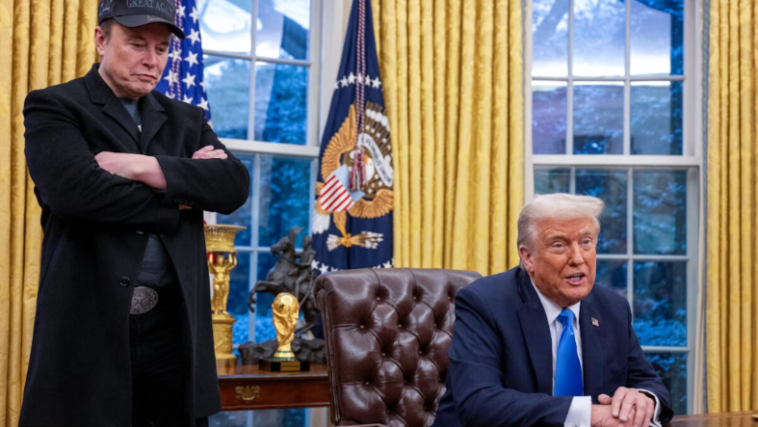In a decisive move to streamline government operations, President Donald Trump has signed an executive order significantly expanding the powers of the Department of Government Efficiency (DOGE), led by Elon Musk. The order mandates that all federal agencies consult with DOGE during the hiring process, restricts new hiring to essential positions only, and paves the way for sweeping reductions in government bureaucracy.
“This is about making government work for the American people—not for the bureaucrats,” Trump declared from the Oval Office. “We’re cutting the waste, and we’re doing it fast.”
Musk’s Expanded Role: Slashing Bureaucracy and Holding Agencies Accountable
Under the new directive, DOGE will play a direct role in overseeing federal hiring decisions and eliminating unnecessary positions, reinforcing Trump’s goal of reducing the size of government. Agencies that fail to comply with DOGE’s efficiency mandates will face budget restrictions, hiring freezes, or reorganization.
Elon Musk, standing alongside Trump at the executive order signing, emphasized that bloated bureaucracy is a fundamental threat to effective governance. “If unelected government employees have more power than elected officials, democracy is broken,” Musk stated. “We’re here to fix that.”
DOGE, created by Trump as part of his second-term government reform initiative, has already made strides in eliminating redundant agencies and consolidating departments. Earlier moves included restructuring USAID, cutting unnecessary regulations, and proposing the elimination of the Department of Education in favor of state-led education models.
Targeting Wasteful Spending and Inefficiency
Musk and Trump’s effort to rein in government waste is not just about reducing staff—it’s about improving effectiveness. DOGE will also audit major federal programs for inefficiencies and push agencies to adopt automation and AI-driven solutions to cut costs and improve service delivery.
Russell Vought, the newly confirmed Director of the Office of Management and Budget, praised the initiative, calling it “one of the most aggressive and necessary government restructuring efforts in modern history.”
“This isn’t just talk—we’re taking action,” Vought said. “The era of unchecked government growth is over.”
Democratic Opposition and Legal Challenges
Predictably, Trump’s move has drawn fierce criticism from Democrats, who accuse the administration of attempting to “dismantle” the federal workforce. Several left-wing lawmakers have voiced concerns over Musk’s access to government data and decision-making power, with some calling DOGE’s expanded role a “hostile takeover of federal agencies.”
In response, Trump dismissed the criticism, saying, “They don’t want efficiency because they thrive on waste. That’s why we’re doing this.”
Legal challenges have already begun, with a federal judge in New York temporarily restricting DOGE’s access to Treasury Department records after a coalition of 19 Democrat-led states filed a lawsuit. The Department of Justice is fighting the injunction, arguing that executive agencies must remain accountable to elected leadership, not entrenched bureaucrats.
A Bold Step Toward Accountability
Despite opposition, the administration remains committed to pushing forward with its reforms. Trump has vowed that DOGE will not just oversee government efficiency but fundamentally reshape how federal agencies operate.
“We are not here to make government bigger,” Musk reiterated. “We are here to make it better, smarter, and accountable to the American people.”
As the battle over government efficiency heats up, Trump’s executive order marks a major turning point in his administration’s drive to cut bureaucratic waste and ensure that the federal government serves the people—not itself.


